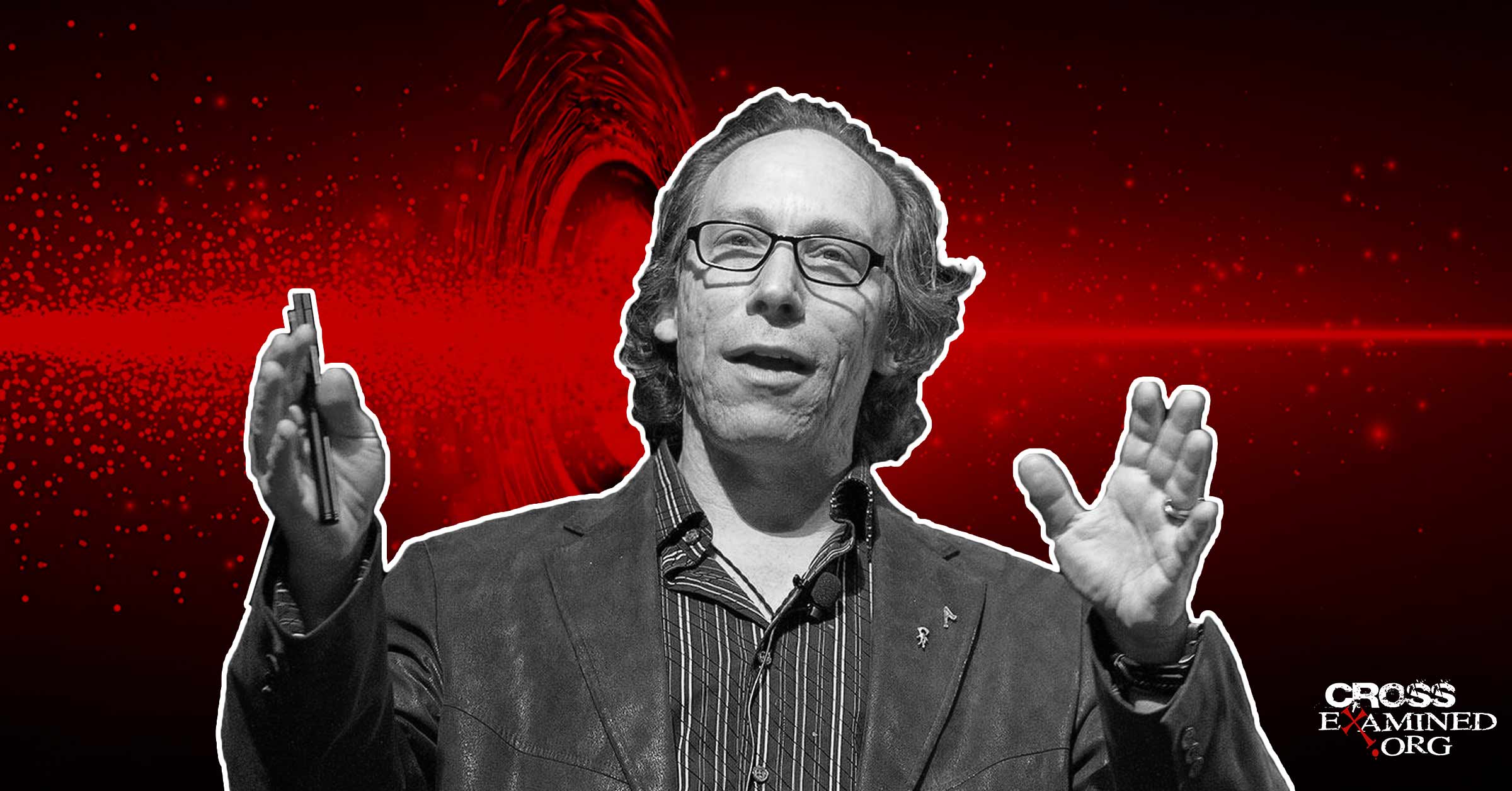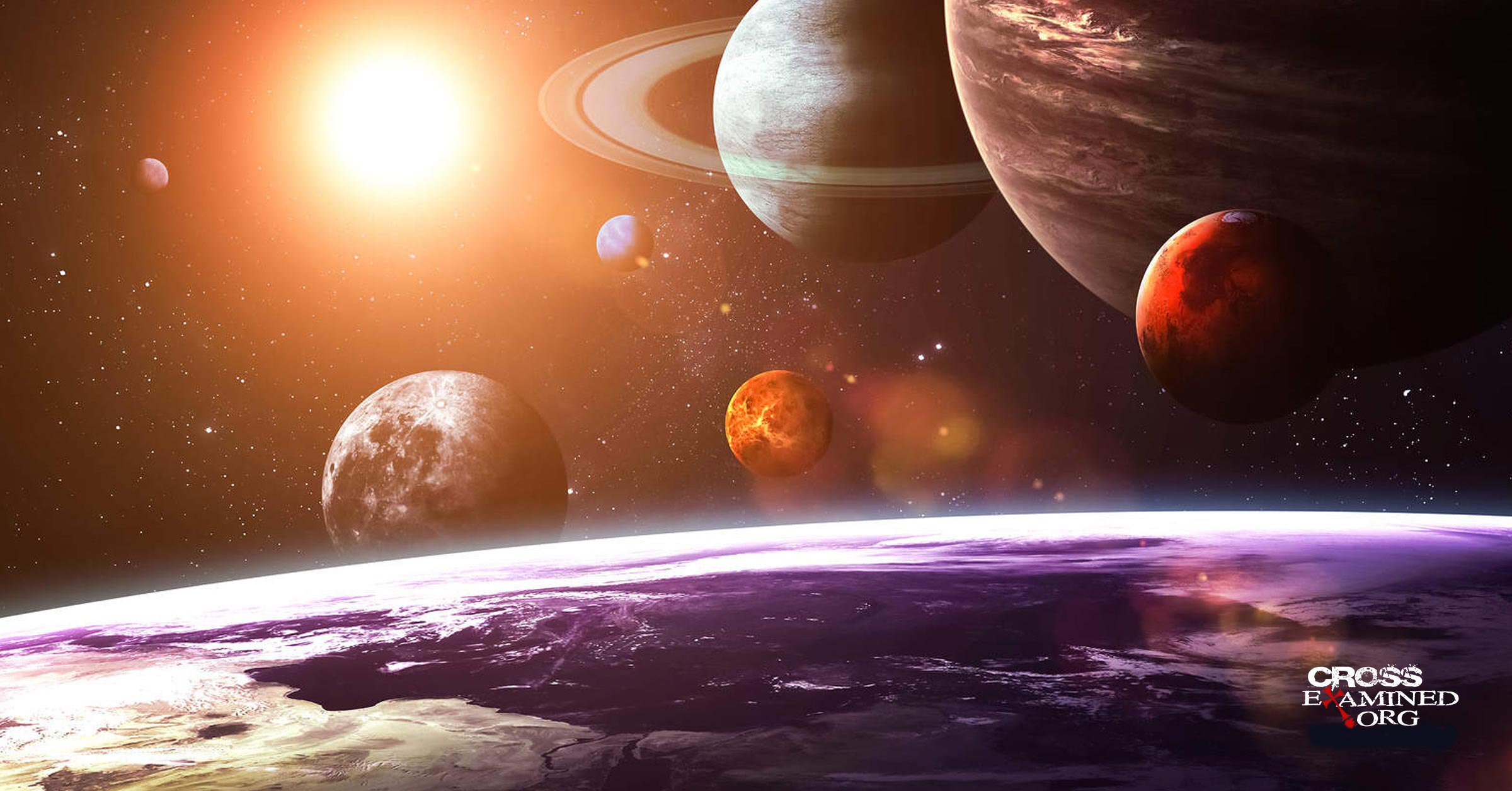If Dr. Richard Dawkins is the atheist’s rock star of biology, Dr. Lawrence Krauss is the atheist’s rock star of physics (maybe only second to Stephen Hawking). An engaging speaker and winsome personality, Dr. Krauss is a theoretical physicist and professor at Arizona State University. In his book A Universe from Nothing, Krauss seeks to answer the age-old question, “Why is there something rather than nothing” without reference to God.
Dr. Krauss says the cause of the universe is not God—it is “nothing.” He cites happenings at the quantum level to dispense with the need for God. (The quantum level is the world of the extremely small, subatomic in size.)
“One of the things about quantum mechanics is not only can nothing become something, nothing always becomes something,” says Dr. Krauss. “Nothing is unstable. Nothing will always produce something in quantum mechanics.”[i]
Now, whenever you hear something that just doesn’t sound right, you ought to ask the person making the claim, “What do you mean by that?” In this case, the precise question to Dr. Krauss would be, “What do you mean by ‘nothing’?”
It turns out that Dr. Krauss’ definition of “nothing” is not the “nothing” from which the universe originated. The initial starting point of the universe was not the quantum vacuum that Dr. Krauss keeps referring to in his book. The starting point was non-being– literally no thing. Since no thing isn’t anything, there are no properties to work with. Nothing is, as Aristotle put it, what rocks dream about. Unless someone powerful intervenes, the ancient maxim still stands: out of nothing, nothing comes.
A quantum vacuum, on the other hand, is something—it consists of fields of fluctuating energy from which particles appear to pop in and out of existence. Whether these particles are uncaused, or are caused but are merely unpredictable to us, is unknown. There are ten different models of the quantum level, and no one knows which is correct. What we do know is that, whatever is happening there, it is not creation out of nothing. Moreover, the vacuum itself had a beginning and therefore needs a cause.
Lest you think I am mad to question the physics of Dr. Krauss, please note that I am more questioning his logic, which is required to do science of any kind. Dr. Krauss is committing the logical fallacy known as equivocation—that is using the same word in an argument but with two different definitions. The “nothing” in the title of Dr. Krauss’ book is not the “nothing” from which the universe came.
This critical distinction was not lost on fellow atheist Dr. David Albert. A Ph.D. in theoretical physics, Dr. Albert is a Professor at Columbia University and author of the book Quantum Mechanics and Experience. In his scathing review of Krauss’ book in the New York Times, Dr. Albert questions both Krauss’ logic and his physics. He pulls no punches and even uses his fist to illustrate.
Commenting on Krauss’ central claim that particles emerging from the quantum vacuum are like creation out of nothing, Dr. Albert writes:
But that’s just not right. Relativistic-quantum-field-theoretical vacuum states — no less than giraffes or refrigerators or solar systems — are particular arrangements of elementary physical stuff. The true relativistic-quantum-field-theoretical equivalent to there not being any physical stuff at all isn’t this or that particular arrangement of the fields — what it is (obviously, and ineluctably, and on the contrary) is the simple absence of the fields! The fact that some arrangements of fields happen to correspond to the existence of particles and some don’t is not a whit more mysterious than the fact that some of the possible arrangements of my fingers happen to correspond to the existence of a fist and some don’t. And the fact that particles can pop in and out of existence, over time, as those fields rearrange themselves, is not a whit more mysterious than the fact that fists can pop in and out of existence, over time, as my fingers rearrange themselves. And none of these poppings — if you look at them aright — amount to anything even remotely in the neighborhood of a creation from nothing (emphasis in the original).[ii]
Speaking of fists, Dr. Albert lands the knockout blow to Krauss’ entire thesis this way, “But all there is to say about this, as far as I can see, is that Krauss is dead wrong and his religious and philosophical critics are absolutely right.” (It’s important to note that Dr. Albert and Columbia University are not known for Christian fundamentalism.)
Now Dr. Krauss didn’t take all this lying down. He got up off the canvas and fought back by calling Dr. Albert “a moronic philosopher.”[iii]
Well, that solves that then. If the guy’s a moron, the non-moron must be right. Right? Actually, on several occasions in this book, Dr. Krauss confuses even non-moronic readers when he admits Dr. Albert’s point in advance—namely, that the “nothing” Krauss is talking about is not exactly the nothing from which the universe came. Dr. Krauss even puts his “nothing” in quotation marks like I just did.
In an interview, Krauss acknowledges that no matter how one defines “nothing,” the laws of physics are not nothing (sorry to keep using the word nothing, but there’s nothing else to use!). And although he’s clearly annoyed doing so, Dr. Krauss eventually gets around to admitting that his “nothing” is actually something.
“Even if you accept this argument that nothing is not nothing,” he says, “you have to acknowledge that nothing is being used in a philosophical sense. But I don’t really give a damn about what ‘nothing’ means to philosophers; I care about the ‘nothing’ of reality. And if the ‘nothing’ of reality is full of stuff, then I’ll go with that.”[iv]
So if Dr. Krauss admits all this, why the bait and switch title: “A Universe from Nothing: Why there is something rather than nothing”? Why smuggle in the laws of physics and the quantum vacuum and then call it “nothing”? Why diss philosophers who are only trying to bring the book’s assertions back to reality?
Dr. Krauss seems to think that philosophers are not talking about reality, when in fact, that’s exactly what philosophy is—the study of ultimate reality. The problem for Krauss is two-fold.
First, reality is not merely physical stuff. Since nature and the laws of physics themselves had a beginning, ultimate reality is beyond nature or supernatural. So despite claiming to explain how the universe came from nothing, Krauss has explained nothing.
The second problem is a far more serious intellectual disease that infects the thinking of Krauss and several other prominent atheists as well. This disease is so severe that it threatens the accuracy of the very science they seek to promote. Krauss, like Dawkins and Hawking, are dismissive of philosophy.
Now, having studied a lot of wacky philosophy myself, I sympathize with them. But the existence of wacky philosophy doesn’t discredit the existence of good philosophy any more than the existence of wacky science discredits the existence of good science. While it is true that one can use bad philosophy, it is impossible to use no philosophy.
In fact—and this is the essential point—Krauss, Dawkins and the like can’t do science without philosophy. While scientists are usually seeking to understand physical cause and effect, science itself is built on philosophical principles that are not physical themselves—they are beyond the physical (metaphysical). Those principles help the scientist make precise definitions and clear distinctions and then interpret all the relevant data rationally.
What exactly is relevant? What exactly is rational? What exactly is the best interpretation of the data –including what exactly is or isn’t “nothing”? Those questions are all answered through the use of philosophy. (Perhaps that’s why the “Ph.” in Ph.D. stands for “philosophy.” The originators of advanced degrees knew that philosophy is the foundation of every area of inquiry.)
Einstein had an observation about the man of science. He said, “The man of science is a poor philosopher.” Unfortunately, if you abandon good philosophy you end up with bad science. And if you disdain all philosophy, as Krauss and company tend to do, then you put yourself in the self-defeating position of holding a philosophy that disdains all philosophy. You can’t get away from philosophy. It’s like logic. To deny it is to use it.
In the end, despite the lofty promises of his book’s title, Dr. Krauss explains nothing about the ultimate origin of the universe.
Notes
[i] Opening statement of Lawrence Krauss in his debate with Dr. William Lane Craig, http://www.reasonablefaith.org/the-craig-krauss-debate-at-north-carolina-state-university#ixzz2bwKlOhe1. See also Dr. Krauss’ book, A Universe from Nothing: Why There Is Something Rather than Nothing, Atria Books, 2012,Chapter 10.
[ii] David Albert, “On the Origin of Everything ‘A Universe From Nothing,’ by Lawrence M. Krauss,” The New York Times, March 23, 2012, http://www.nytimes.com/2012/03/25/books/review/a-universe-from-nothing-by-lawrence-m-krauss.html?_r=0.
[iii] Ross Anderson, “Has Physics Made Philosophy and Religion Obsolete?”. The Atlantic, April 2012, http://www.theatlantic.com/technology/print/2012/04/has-physics-made-philosophy-and-religion-obsolete/256203/.
[iv] Ross Anderson, Ibid.
Recommended resources related to the topic:
God’s Crime Scene: Cold-Case…Evidence for a Divinely Created Universe (Paperback), (Mp4 Download), and (DVD Set) by J. Warner Wallace
God’s Crime Scene: The Case for God’s Existence from the Appearance of Design (mp4 Download Set) by J. Warner Wallace
God’s Crime Scene: The Case for God’s Existence from the Appearance of Design in Biology DVD Set by J. Warner Wallace
What is God Like? Look to the Heavens by Dr. Frank Turek (DVD and Mp4)
I Don’t Have Enough Faith to Be an Atheist (Paperback), and (Sermon) by Norman Geisler
Dr. Frank Turek (D.Min.) is an award-winning author and frequent college speaker who hosts a weekly TV show on DirectTV and a radio program that airs on 186 stations around the nation. His books include I Don’t Have Enough Faith to be an Atheist and Stealing from God: Why atheists need God to make their case




